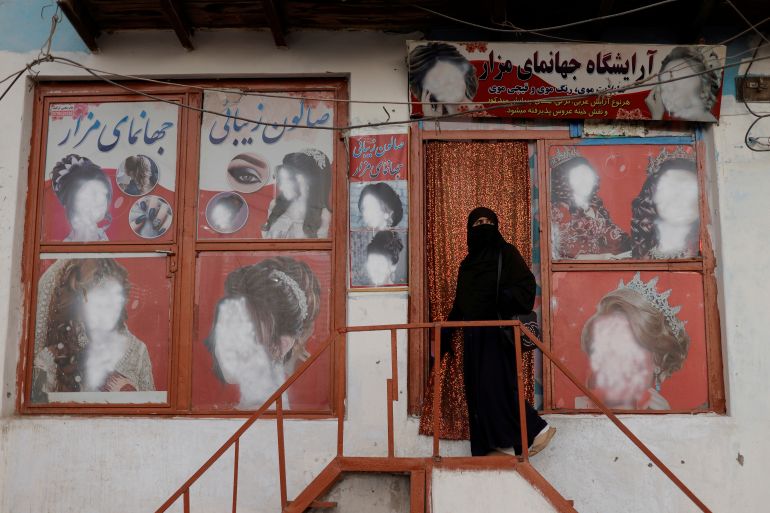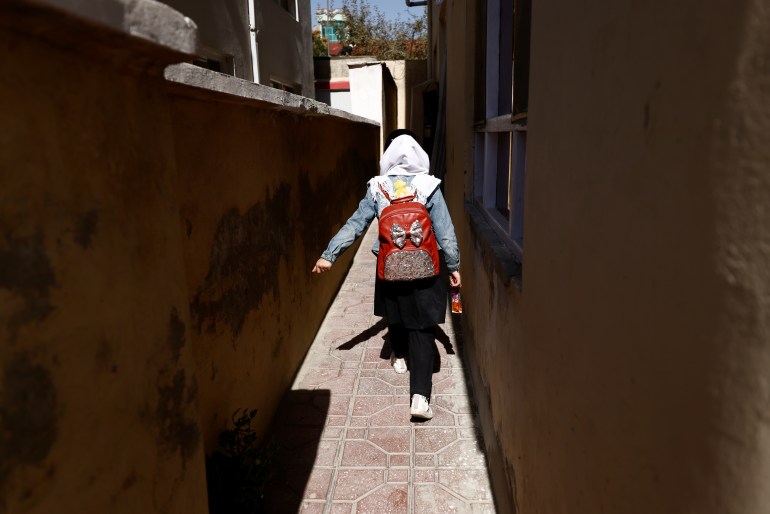US names two women to senior diplomatic posts for Afghanistan
The appointments come as the Taliban government rolls back women’s rights for travel, education and employment.

The US has named two female diplomats to senior roles representing Washington in Afghanistan, as women’s rights in the country continue to deteriorate under the new Taliban government.
US Secretary of State Antony Blinken appointed Rina Amiri as a special envoy for Afghan women, girls and human rights on Wednesday.
Keep reading
list of 4 itemsAfghan women call for rights, protest alleged Taliban killings
‘No need’: Taliban dissolves Afghanistan election commission
Afghanistan women’s football team flees to Pakistan
Amiri has spent two decades advising governments, the UN and think-tanks on issues related to Afghanistan. Under former US President Barack Obama, she served as a senior adviser to the US special representative for Afghanistan and Pakistan.
I welcome Rina Amiri back to @StateDept as Special Envoy for Afghan Women, Girls, and Human Rights. Rina brings over two decades of expertise and specialized knowledge that will advance our vital work toward a more peaceful, stable, and secure Afghanistan for all.
— Secretary Antony Blinken (@SecBlinken) December 29, 2021
“Rina brings over two decades of expertise and specialized knowledge that will advance our vital work toward a more peaceful, stable and secure Afghanistan for all,” Blinken said on Twitter.
Blinken also named Stephenie Foster, a Department of State veteran, as a new senior adviser for women and girls to US operations to evacuate and resettle Afghans at risk of retaliation from the Taliban after it took over the country.
The appointments come more than four months after the Taliban overran the country as the former Western-backed government collapsed and the last US troops withdrew after 20 years of war.
Since then, the Taliban has curbed the rights of women and girls, banning most of the former from working and most of the latter from attending schools in what US officials decry as back-tracking from assurances they gave to observe human rights.
On Sunday, Taliban officials issued an edict prohibiting women from travelling more than 75km by road unless they are accompanied by a close male relative.
The guidance issued by the Ministry for the Promotion of Virtue and Prevention of Vice, which also called on vehicle owners to refuse rides to women not wearing headscarves, drew condemnation from rights activists.
The move followed the Taliban barring many women in public-sector roles from returning to work in the wake of their August 15 seizure of power, and as girls remain largely cut off from secondary schooling.
Weeks ago, the ministry asked Afghanistan’s television channels to stop showing dramas and soap operas featuring female actors. It also called on female TV journalists to wear headscarves while presenting.
The government of US President Joe Biden has come under fire from women’s rights groups for failing to ensure safe passage for activists and others that had long been targeted by the Taliban.
Women inside the Biden administration traded concerned emails and text messages behind the scenes after the lightning-fast Taliban takeover in mid-August and the subsequent chaotic US exit from the country, the Reuters news agency reported, citing multiple sources inside and outside the administration.
At the time, Amiri told Reuters the process of evacuating women at risk had been a disaster.

Biden had made clear early on in high-level policy discussions that concerns about women’s rights would not sway his decision to exit Afghanistan, despite promising during the campaign to forge a gender-sensitive foreign policy, she said.
The United States and other governments also have accused the Taliban of failing to establish an “inclusive” government and they have expressed concern about reports of summary executions.
About 30 women rallied in Kabul on Tuesday, calling for women’s rights to be respected and accusing Taliban authorities of covertly killing soldiers who served the former US-backed government.
“I want to tell the world, tell the Taliban to stop killing. We want freedom, we want justice, we want human rights,” protester Nayera Koahistani told the AFP news agency.